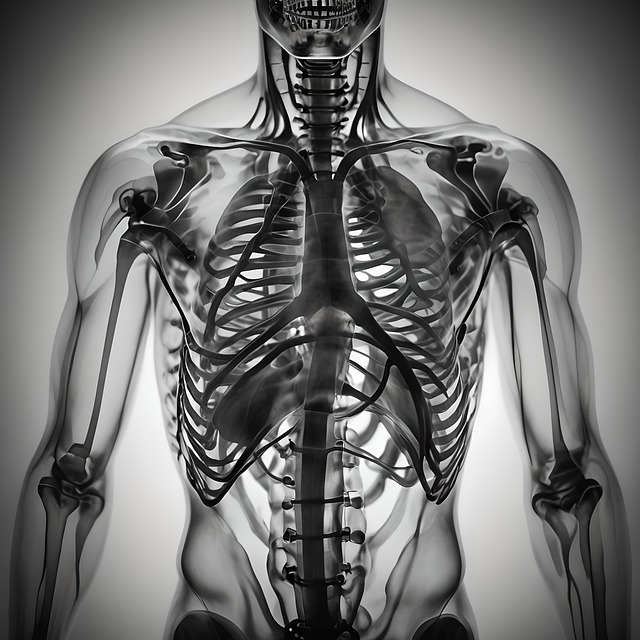Advanced cancer MRI scan techniques using fMRI and DWI, aided by AI algorithms, revolutionize early cancer detection by analyzing vast data, identifying subtle anomalies, predicting tumor behavior, and improving diagnostic accuracy. Molecular imaging further enhances precision by visualizing tumors at a cellular level. Non-invasive cancer MRI scans, with improved technology and accessibility, empower healthcare providers for routine screenings, leading to better treatment outcomes and higher survival rates.
The early detection of cancer is a pivotal step in improving patient outcomes. Future innovations in cancer imaging technology, particularly advanced cancer MRI scan techniques, promise to revolutionize early diagnosis. This article explores cutting-edge advancements, including AI integration for enhanced image analysis, molecular imaging to visualize cellular abnormalities, and non-invasive scanning methods that prioritize safety and accessibility. These breakthroughs aim to detect cancer at its earliest stages, ultimately saving lives.
Advanced Cancer MRI Scan Techniques for Early Detection
Advanced cancer MRI scan techniques are paving the way for earlier and more accurate cancer detection. These cutting-edge methods go beyond conventional MRI by utilizing specialized sequences and contrast agents to enhance visibility of early tumor growth. For instance, functional MRI (fMRI) detects metabolic changes associated with cancer, while diffusion-weighted MRI (DWI) highlights subtle tissue abnormalities.
Integrating artificial intelligence (AI) further improves the precision of cancer MRI scans. AI algorithms can analyze vast amounts of imaging data, identifying patterns indicative of tumor presence and even predicting tumor behavior. This technology promises to revolutionize early cancer diagnosis, enabling more effective treatment strategies and improving patient outcomes.
Integrating AI: Enhancing Image Analysis Accuracy
The integration of Artificial Intelligence (AI) in cancer imaging is revolutionizing the way we approach early diagnosis. AI algorithms can analyze vast amounts of medical image data, including high-resolution cancer MRI scans, with remarkable precision and speed. By learning from extensive datasets, these algorithms can detect subtle anomalies or changes within images that might be missed by human observers, thereby improving diagnostic accuracy and efficiency.
AI-driven systems have shown promise in identifying early-stage tumors, assessing tumor growth, and even predicting treatment responses. They can assist radiologists in interpreting complex scans, reducing the time required for analysis and potential errors caused by fatigue or subjectivity. With ongoing advancements, AI integration promises to make cancer MRI scans more accessible and accurate, enabling earlier interventions and potentially improving patient outcomes.
Molecular Imaging: Visualizing Cancer at the Cellular Level
Molecular imaging represents a groundbreaking advancement in cancer diagnostics, enabling healthcare professionals to visualize and detect tumors at an incredibly detailed level—down to the cellular scale. This innovative approach goes beyond conventional cancer MRI scans by not only identifying abnormal growths but also providing insights into their biological characteristics. By tracking specific molecular markers associated with cancer cells, specialized imaging techniques like positron emission tomography (PET) and fluorescence imaging can highlight tumor activity and help distinguish between benign and malignant masses.
This level of precision allows for earlier detection, which is pivotal in improving patient outcomes. Molecular imaging technologies offer a non-invasive way to monitor disease progression, assess treatment effectiveness, and even predict potential recurrence. With the ability to tailor treatments based on molecular profiles, healthcare providers can ensure more personalized care for cancer patients, ultimately contributing to better long-term survival rates.
Non-Invasive Scanning: Safety and Accessibility Improvements
Non-invasive scanning techniques are poised to revolutionize early cancer detection, with significant advancements in safety and accessibility. One notable example is the evolution of cancer MRI scans, which offer a safe and precise alternative to traditional invasive methods. Modern MRI technology employs enhanced contrast agents and sophisticated software algorithms to visualize even minute tumors, thereby improving diagnostic accuracy.
These innovations ensure that cancer MRI scans are increasingly accessible to a broader patient population. With reduced risks associated with radiation exposure, as well as improved comfort and convenience compared to other procedures, non-invasive scanning methods are becoming more attractive for routine screenings. This shift promises to empower healthcare providers with powerful tools for early cancer detection, ultimately leading to better treatment outcomes and enhanced survival rates.
The future of cancer diagnosis lies in early detection, and innovative imaging technologies are leading this charge. By combining advanced MRI techniques, artificial intelligence, molecular imaging, and non-invasive scanning methods, healthcare professionals can now visualize and pinpoint tumors at their earliest stages. These breakthroughs promise more accurate diagnoses, improved patient outcomes, and enhanced accessibility to life-saving care. With continued research and development in cancer MRI scan technologies, early detection is becoming a reality, offering hope and saving lives worldwide.
